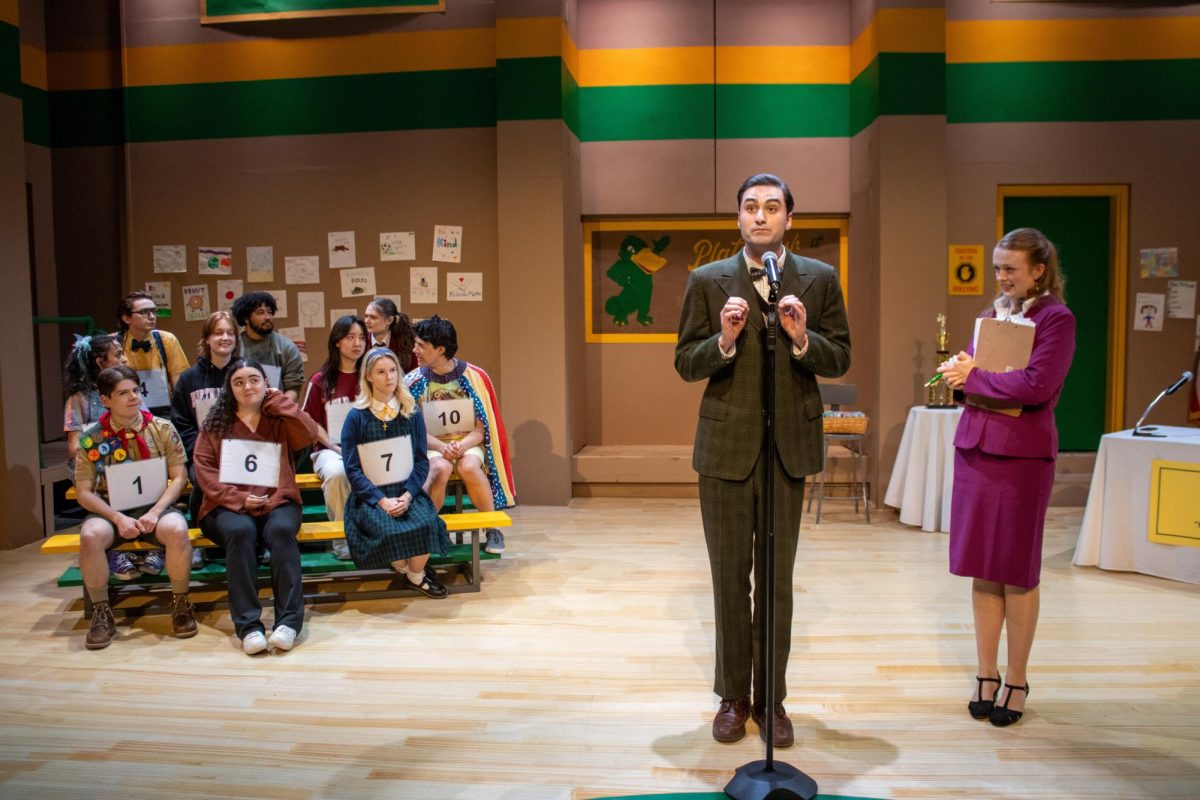Fans of both devastating television and Irish actors rejoiced over the pairing of Andrew Scott and Paul Mescal in director Andrew Haigh’s “All of Us Strangers” — and for good reason.
Opening with a limited release in December 2023, “All of Us Strangers” fell in the shadows of other highly anticipated blockbusters like “Wonka” and “Mean Girls” (2024) that seem to be dominating the box office. But Haigh creates an almost unbearable, but painfully incredible, adaptation of Japanese writer Taichi Yamada’s 1987 novel “Strangers.” A romance, fantasy and drama all at once, Haigh keeps viewers on their toes in a film that is somehow extremely simple yet tragically complex.
The film follows Adam (Scott), a gay, lonely screenwriter with a tragic past, who spends most of his days lounging around his apartment, trying to write and eating reheated leftovers. He is almost always alone — until he meets Harry (Mescal).
Harry is the only other occupant of Adam’s confusingly deserted London apartment building. He drunkenly stumbles to Adam’s door looking for company, and Adam, perhaps too comfortable with being alone, politely declines, despite his intrigue. When the pair meet again, they quickly become engulfed in a relationship of sexual passion, created by a bond formed over familial trauma and growing up queer.
Amidst this, Adam lacks the inspiration to write a piece about his late parents, and he finds himself frequently taking the train back to his childhood home where his parents (Jamie Bell and Claire Foy) lived before they tragically died in a car accident some 30 years ago.
Scott is absolutely and undoubtedly incredible. The excellence of the film was riding entirely on his shoulders, and he did not disappoint. Scott’s depiction of Adam is awkward and beautiful, tragic and heartwarming, and his deliveries of Adam’s monologues are emotionally penetrating.
Mescal has mastered the niche of creating the lost, vulnerable 20-something everyone simultaneously hurts for and yearns for. It feels like Mescal’s character, Connell, in his debut show “Normal People,” has come back to haunt his fans, but somehow more destructive than before. This is a win for “Normal People” and Paul Mescal fans nonetheless.
Mescal and Scott, alongside one another, have brilliant chemistry that is cheeky, and even fun, in a film so utterly discomforting.
Bell and Foy’s depictions of not-quite-there parents are exceptional. Adam grappled with being gay as a child, and while his parents were aware of his struggles growing up, they declined to make an effort to soothe them. Now, comfortable in his sexuality, Adam tries to cope with whether his parents would be proud of the life he lives after their deaths.
“I do love you very much,” Adam’s mother said. “Somehow, even more now that I know you.”
Suddenly, it feels like Adam is 12 years old again, back in his old life as a closeted, bullied child, with parents who are doing their best. But can their “best” ever really be enough?
The soundtrack brilliantly adds to Adam’s nostalgia. The Pet Shop Boys’ cover of Elvis Presley’s “Always on My Mind” plays in the background as Adam and his parents decorate the Christmas tree, an event Adam recalls was his father’s favorite. The lyrics, “Maybe I didn’t love you / Quite as often as I should” are sung as Adam yearnigly looks up at his father hanging ornaments carefully on the tree.
Haigh creates a fantasy world through sharp scene cuts complemented by blurry shots that feel like a familiar dream. Adam is the only thing in the film that truly feels in focus to the viewer, with everything else somehow falling beyond reach. The soft, orange-toned aura of the film perfectly complements the dark concepts and devastating plot line.
When Adam and Harry go out to the club, the audience is transported into a blur of bright colors and shaky camera work, with the accompanying audio of Joe Smooth’s “Promised Land” blasting. For the film’s duration, it’s unclear if the entire thing is something of a hallucination — it’s almost as if the viewer has been submerged deep inside Adam’s mind.
While some could argue the film moved slowly and lacked breakthroughs and action, it’s Adam’s mind that is exhilarating. Plus, the film isn’t meant to be upbeat — Adam lives a simple, solitary life, and anything more than the excellence Haigh created would disrupt the true meaning of the plot.
This film is not for the emotionally weak — or maybe that’s exactly who it’s for. “All of Us Strangers” is beautifully done in a way that leaves your inner child pleasantly healed, and your adult self comfortably distraught.

















